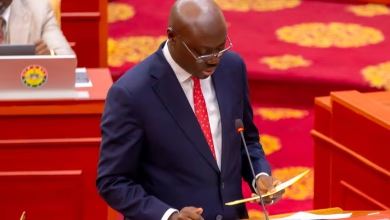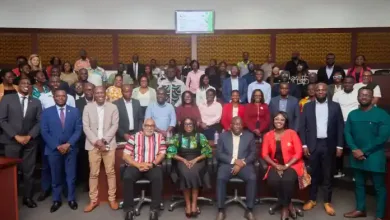Nationwide Strike to Inflict Heavy Financial Blow on Businesses – GEA

- GEA appeals to Organized Labour to call off nationwide strike
- Strike to cost businesses millions/billions of cedis
- Dialogue and cooperation proposed to address galamsey and workers' rights
- Collective action sought to avoid devastating economic consequences
With only 24 hours left before Organized Labour’s nationwide strike, the Ghana Employers Association (GEA) has made a last-minute appeal to call off the strike. According to GEA, a nationwide strike would have devastating consequences for businesses across the country.
The Chief Executive Officer of GEA, Alex Frimpong, emphasized the importance of dialogue between the two parties to resolve the issue amicably. “There are many ways to resolve this matter,” Frimpong said, highlighting the need for collective action to address the galamsey issue.
Frimpong stressed that businesses are already struggling, and a nationwide strike would only exacerbate the economic challenges. He urged Organized Labour to reconsider their decision, citing the dire economic and business consequences that would arise from such action.
GEA is concerned that the strike would bring the nation to a standstill, with severe repercussions for businesses and the economy. Frimpong emphasized the need for dialogue, stating, “We want to engage Organised Labour and draw attention to the consequences; together, we can resolve the problem”.
The proposed strike is not an isolated incident; Organized Labour has been vocal about various issues, including union bashing and workers’ rights. However, GEA is adamant that dialogue is the best way forward.
Frimpong reiterated GEA’s commitment to supporting measures that address the galamsey issue but cautioned against actions that would harm businesses. He appealed to Organized Labour to review the situation and work together to find a solution.
The potential costs of the strike are staggering, with estimates suggesting millions, if not billions, of cedis in losses. Frimpong emphasized that Organized Labour must consider the long-term implications of their actions.
In light of the impending strike, GEA is urging all parties involved to prioritize dialogue and cooperation. By working together, they hope to find a resolution that benefits both businesses and workers.
The clock is ticking, and the outcome remains uncertain. One thing is clear: the consequences of a nationwide strike would be far-reaching and devastating for Ghana’s economy.
As the nation holds its breath, GEA’s appeal to Organized Labour remains: call off the strike and let’s work together to find a solution that benefits everyone.






